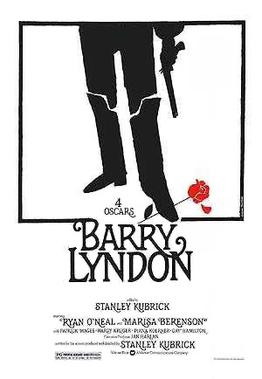
Barry Lyndon is a 1975 epic historical drama and black comedy film written, directed, and produced by Stanley Kubrick, based on the 1844 novel The Luck of Barry Lyndon by William Makepeace Thackeray. Narrated by Michael Hordern, and starring Ryan O'Neal, Marisa Berenson, Patrick Magee, Leonard Rossiter and Hardy Krüger, the film recounts the early exploits and later unravelling of an 18th-century Anglo-Irish rogue and gold digger who marries a rich widow to climb the social ladder and assume her late husband's aristocratic position.

Dr. Strangelove or: How I Learned to Stop Worrying and Love the Bomb is a 1964 political satire black comedy film co-written, produced, and directed by Stanley Kubrick and starring Peter Sellers in three roles, including the title character. The film, financed and released by Columbia Pictures, was a co-production between the United States and the United Kingdom.
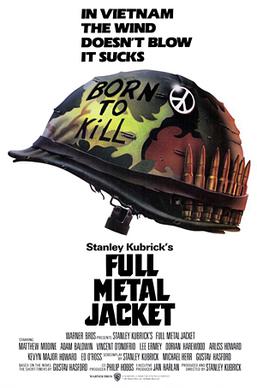
Full Metal Jacket is a 1987 war film directed and produced by Stanley Kubrick from a screenplay he co-wrote with Michael Herr and Gustav Hasford. The film is based on Hasford's 1979 autobiographical novel The Short-Timers. It stars Matthew Modine, R. Lee Ermey, Vincent D'Onofrio, Adam Baldwin, Dorian Harewood, and Arliss Howard.
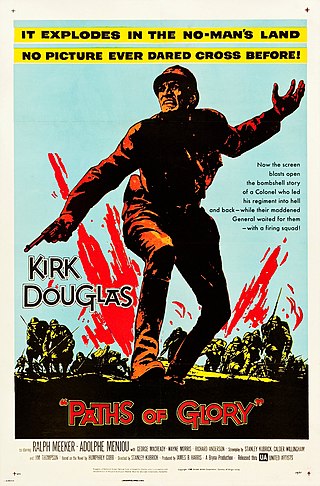
Paths of Glory is a 1957 American anti-war film co-written and directed by Stanley Kubrick, based on the novel of the same name by Humphrey Cobb, which was based on the Souain corporals affair during World War I. The film stars Kirk Douglas as Colonel Dax, the commanding officer of French soldiers who refuse to continue a suicidal attack, after which Dax defends them against charges of cowardice in a court-martial.

Stanley Kubrick was an American film director, screenwriter, producer, and photographer. Widely considered one of the greatest filmmakers of all time, his films were nearly all adaptations of novels or short stories, spanning a number of genres and gaining recognition for their intense attention to detail, innovative cinematography, extensive set design, and dark humor.

Spartacus is a 1960 American epic historical drama film directed by Stanley Kubrick and starring Kirk Douglas in the title role, a slave and gladiator who leads a rebellion against Rome during the events of the Third Servile War. Adapted by Dalton Trumbo from Howard Fast's 1951 novel of the same title, the film also stars Laurence Olivier as Roman general and politician Marcus Licinius Crassus, Charles Laughton as rival senator Sempronius Gracchus, Peter Ustinov as gladiatorial school owner Lentulus Batiatus, and John Gavin as Julius Caesar. Jean Simmons played Spartacus' wife Varinia, a fictional character, and Tony Curtis played the fictional slave Antoninus.
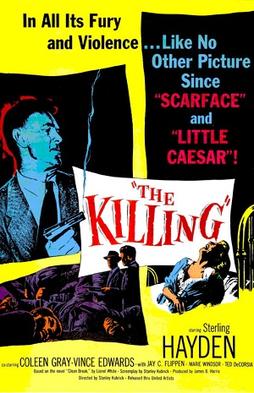
The Killing is a 1956 American film noir directed by Stanley Kubrick and produced by James B. Harris. It was written by Kubrick and Jim Thompson and based on Lionel White's novel Clean Break. It stars Sterling Hayden, Coleen Gray, and Vince Edwards, and features Marie Windsor, Elisha Cook Jr., Jay C. Flippen and Timothy Carey.
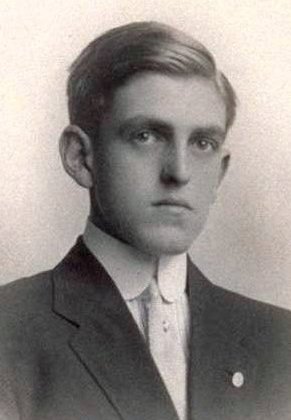
Sidney Coe Howard was an American playwright, dramatist and screenwriter. He received the Pulitzer Prize for Drama in 1925 and a posthumous Academy Award in 1940 for the screenplay for Gone with the Wind.

The Shining is a 1980 psychological horror film produced and directed by Stanley Kubrick and co-written with novelist Diane Johnson. It is based on Stephen King's 1977 novel of the same name and stars Jack Nicholson, Shelley Duvall, Danny Lloyd, and Scatman Crothers. The film presents the descent into insanity of a recovering alcoholic and aspiring novelist (Nicholson) who takes a job as winter caretaker for a haunted resort hotel with his wife (Duvall) and clairvoyant son (Lloyd).
Michael David Herr was an American writer and war correspondent, known as the author of Dispatches (1977), a memoir of his time as a correspondent for Esquire (1967–1969) during the Vietnam War. The book was called "the best book to have been written about the Vietnam War" by fellow author C.D.B. Bryan in his review for The New York Times Book Review. Novelist John le Carré called it "the best book I have ever read on men and war in our time."
Christiane Susanne Kubrick is a German actress and painter. She was born into a theatrical family, and was the wife of filmmaker Stanley Kubrick from 1958 until his death in 1999.
Humphrey Cobb was an Italian-born, Canadian-American screenwriter and novelist. He is known for writing the novel Paths of Glory (1935), which was made into an acclaimed 1957 anti-war film Paths of Glory by Stanley Kubrick. Cobb was also the lead screenwriter on the 1937 film San Quentin, starring Humphrey Bogart.
Calder Baynard Willingham Jr. was an American novelist and screenwriter.

Géraud François Gustave Réveilhac was a French général de division during World War I. He gained infamy for the Souain corporals affair in 1915 when four non-commissioned officers were executed as an example to other troops he commanded who had refused to attack a heavily-defended position on the Western Front. His actions were an inspiration for Humphrey Cobb's novel Paths of Glory; the 1957 film of the same name was made by Stanley Kubrick. In 1916 he was relieved of front line duty. He was made a commander in the French reserves until the end of the war.
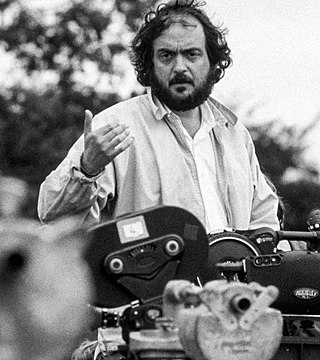
The following is a list of unproduced Stanley Kubrick projects in roughly chronological order. During his long career, American film director Stanley Kubrick had worked on a number of projects which never progressed beyond the pre-production stage under his direction. Some of these projects fell into development hell or are officially cancelled.
The political and religious views of filmmaker Stanley Kubrick (1928–1999) have been subjects of speculation during his lifetime and after his death. It is generally agreed that Kubrick was fascinated by the possibilities of a supernatural reality, as reflected in 2001: A Space Odyssey (1968) and The Shining (1980).

A list of books and essays about Stanley Kubrick and his films.

Stanley Kubrick (1928–1999) directed thirteen feature films and three short documentaries over the course of his career. His work as a director, spanning diverse genres, is regarded as highly influential.

The Souain corporals affair was an incident where four corporals in the French Army were shot by firing squad as an example to the rest of their companies during the First World War. The executions, which occurred in the vicinity of Souain on 17 March 1915, are considered to be the most egregious and most publicized military injustice during World War I in France. The events inspired the 1935 anti-war novel Paths of Glory by Humphrey Cobb, later adapted for film by Stanley Kubrick.

Paths of Glory is a 1935 war novel by Humphrey Cobb. Set during the World War I, the story tells of the French 181st company, which is sent by the general's order to carry out a reckless attack in no man's land with the purpose to take the strategically important "Pimple", and how the failure is covered up by court martialing "war criminals" for cowardice.













